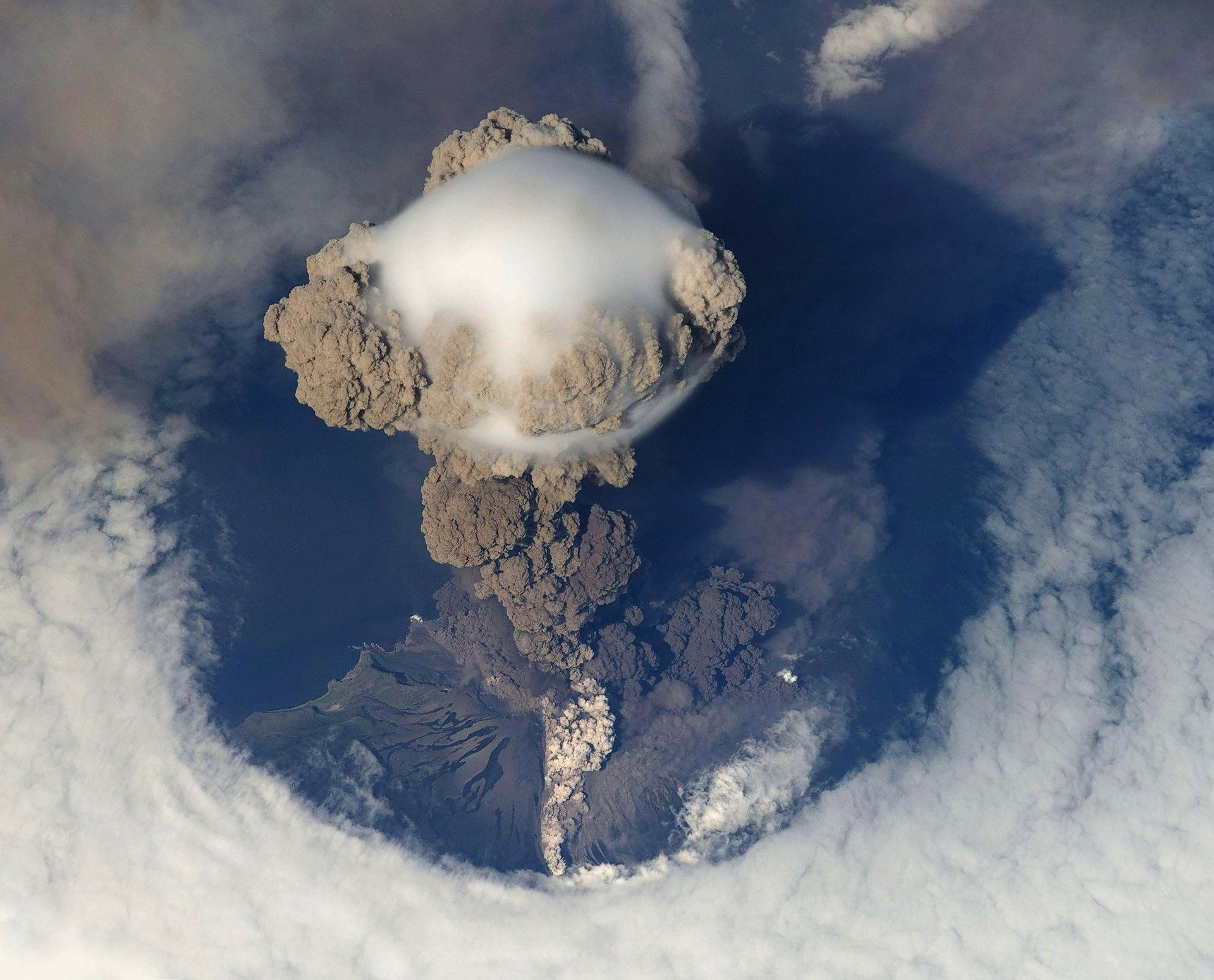The massive underwater volcanic eruption in the Polynesian kingdom of Tonga has been felt worldwide. The Hunga Tonga-Hunga Ha’apai, the underwater volcano erupted on Saturday. Just after the incident, the area witnessed heavy rainfall along with a thunderstorm.
Soon after the explosion, several videos have been going viral on what’s going on in Tonga. Videos of moments before and after the eruption started surfacing over Twitter and Facebook. A sonic sound followed by ash and steam quickly spread to almost 20 kilometers. Thereafter, the eruption, the police instructed people to move to higher grounds. The reports say that the volcanic eruption has heightened the chances of tsunami waves when dust clouds are already covering the region.
Many inhabitants of Tonga are still in shock. A resident told The Stuff, how at first they were shocked by the explosive sound. All of a sudden, water started flooding into their houses. He said that despite being safe they still have their worries and that they are staying cautious. People have got their phones and other gadgets to stay updated with other alerts.
As per New Zealand’s Prime Minister Jacinda Arden, as of now, zero reports of injury or deaths are recorded. However, nothing can be said surely since communication lines have been disrupted, the complete assessment of the situation is not possible at the moment. She further added that Tonga’s capital city Nuku’alofa has been covered in a thick film of volcanic dust.
The eruption has majorly affected the northern region of the city where boats, as well as big boulders, have washed ashore due to violent waves in the sea. Despite all these circumstances, the city is still calm and very much stable. According to her, Tonga needed water supplies, and at present, the situation has turned more dreadful as the country is covered in ash and dust which contaminates water.
From New Zealand to the United States, the giant explosion has directed tsunami threats in different parts of the globe. According to the Pacific Tsunami Warning Center (PTWC), the people living in coastal regions must stay away from the shore while coastal regions’ authorities should stay on alert. This year’s eruption has been compared with last year’s eruption which was a lot quieter than this year.











